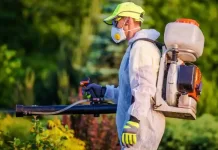Mosquitoes, those tiny, buzzing insects that invade our outdoor gatherings and disrupt our peaceful nights, are more than just a nuisance. They pose a significant health threat by transmitting diseases that affect millions of people worldwide. This article explores the importance of mosquito pest control services in combating mosquito-borne diseases and creating safer environments for communities.
The Mosquito Menace: A Vector of Disease
Mosquitoes are notorious disease vectors, meaning they can transmit various pathogens from one host to another through their bites. Some of the deadliest diseases on the planet, including malaria, dengue fever, Zika virus, and West Nile virus, are spread by these relentless insects. To understand the importance of pest control services, here are the consequences of mosquito-borne diseases.
1. Malaria: A Global Health Crisis
Malaria, transmitted primarily by female Anopheles mosquitoes, is one of the deadliest mosquito-borne diseases, causing hundreds of thousands of deaths each year. Pest control services play a crucial role in reducing mosquito populations, which, in turn, curbs the spread of malaria in affected regions.
2. Dengue Fever: A Pervasive Threat
Dengue fever, transmitted by Aedes mosquitoes, is a widespread and debilitating disease. It affects millions of people, causing severe flu-like symptoms, and can progress to life-threatening dengue hemorrhagic fever. Pest control efforts are essential to combat Aedes mosquito populations and prevent dengue outbreaks.
3. Zika Virus: Birth Defects and Neurological Complications
The Zika virus, also transmitted by Aedes mosquitoes, gained global attention due to its association with severe congenital disabilities and neurological complications in infants born to infected mothers. Pest control measures are crucial in regions where Zika virus transmission occurs to protect vulnerable populations.
4. West Nile Virus: A Growing Concern
West Nile virus, carried by infected Culex mosquitoes, has become a growing concern in many parts of the world. It can lead to severe neurological diseases and poses a significant public health threat. Pest control services help reduce the risk of West Nile virus transmission by targeting Culex mosquito populations.
5. Chikungunya and Yellow Fever: Emerging Threats
Chikungunya and yellow fever are two mosquito-borne diseases that have the potential to cause widespread outbreaks. Pest control measures are essential in regions at risk of these diseases, as they can prevent or mitigate the impact of epidemics.
The Role of Pest Control Services:
Effective pest control services are instrumental in mitigating the threat of mosquito-borne diseases. Here’s why they are crucial:
1. Targeted Mosquito Reduction
Pest control services employ various methods to reduce mosquito populations in specific areas. This targeted approach helps minimise the risk of disease transmission within communities.
2. Larvicides and Insecticides
Pest control experts use larvicides and insecticides to treat breeding sites and resting areas of mosquitoes. These chemicals are applied safely and strategically to reduce mosquito numbers.
3. Surveillance and Monitoring
Pest control services conduct surveillance to track mosquito activity and disease prevalence. This data helps authorities implement timely interventions and respond to potential outbreaks.
4. Community Education
Pest control services often engage in community education initiatives. They raise awareness about mosquito-borne diseases, preventive measures, and the importance of mosquito control, empowering communities to protect themselves.
5. Integrated Pest Management (IPM)
IPM strategies combine multiple pest control methods, including biological controls, habitat modification, and chemical treatments. This holistic approach is effective in reducing mosquito populations while minimising environmental impact.
Conclusion
Mosquito-borne diseases pose a significant threat to public health, causing suffering and loss of life. Mosquito pest control services are instrumental in combating these diseases by reducing mosquito populations, implementing preventive measures, and educating communities. Their expertise and efforts are crucial in creating safer environments and protecting vulnerable populations from the devastating impact of mosquito-borne diseases. As the global community faces ongoing challenges from these diseases, investing in effective pest control services remains a vital component of public health strategies.




















